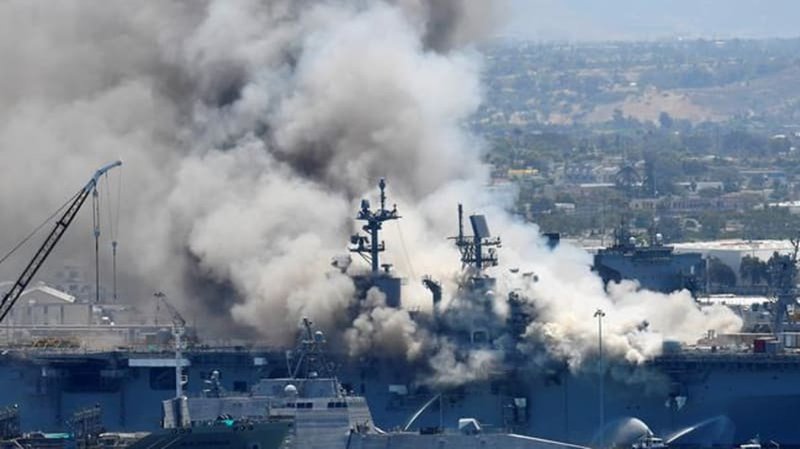
Defence official: Arson suspected as cause of Navy ship fire
SAN DIEGO — Arson is suspected as the cause of a July 12 fire that left extensive damage to the USS Bonhomme Richard and a U.S. Navy sailor is being questioned as a potential suspect, a senior defence official said Wednesday.
The sailor was being questioned but was not detained and defence department leaders were notified of the development, the official said. The official, with knowledge of the investigation, spoke to The Associated Press on condition of anonymity to provide details not yet made public.
The amphibious assault ship burned for more than four days and was the Navy’s worst U.S. warship fire outside of combat in recent memory.
The ship was left with extensive structural, electrical and mechanical damage and its future remains uncertain.


